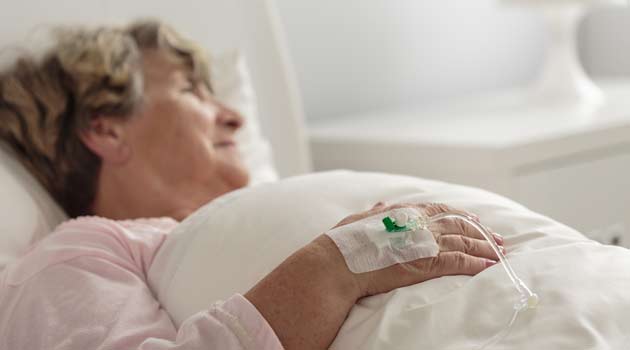Does Israel want full scale war in the Middle East?
Passports not in the drawer I always keep them in. Turning the place upside down.
Prayer ban at Katharine Birbalsingh’s school is lawful, High Court rules .

A survey by Gransnet and the Parliamentary and Health Service Ombudsman reveals that half of older patients’ families struggle to complain about poor care in hospital.

Older vulnerable people are often reliant on relatives to raise concerns when things go wrong in hospital, yet over half (51%) of family members with a concern say it is difficult to complain about the hospital care or treatment of an older relative.
The Parliamentary and Health Service Ombudsman sees far fewer complaints from older people than would be expected given older people’s high usage of NHS services.
A previous report by the Ombudsman Service has highlighted that many older people are afraid to raise the alarm when something goes wrong in their care and worry about what will happen to them if they do.
The survey of over 600 Gransnet members reveals that:
The types of issues respondents experienced included their older relative not being given enough help with their personal care needs, such as going to the bathroom and washing themselves, which affected over 1 in 4 (28%). Almost 1 in 5 (19%) of those surveyed said that their older relative had not been treated with dignity and respect during their time in hospital.
The survey also reveals wider concerns about communication with older patients and their families:
Poor communication is a factor in around one third of all complaints the Ombudsman service investigates about the NHS in England.
Half of those who responded to the survey were under the age of 50. The average age of the older relative referred to in the survey was 79 and 47% of participants said they were referring to a parent.
Rob Behrens, Parliamentary and Health Service Ombudsman, said, "The NHS is a lifeline for many vulnerable older people but when things go wrong, too many are suffering in silence. I want people to be confident to complain, know their rights, and speak up when things go wrong so that the NHS can learn from mistakes and improve services for others. NHS staff should make patients and their loved ones aware of how to complain, point them to available support, and make it absolutely clear that their future care will not be compromised."
Gransnet Editor Lara Crisp said, "Patients deserve better than this. While we appreciate that services are stretched, communication with patients and their families must be improved. They should feel that their concerns are taken seriously and addressed properly. It’s simply not acceptable that over half of people with a concern feel they can’t complain or that it won’t make any difference if they do. Hospital staff need to be supported and enabled to communicate better with patients so that everyone is clear about the complaints procedure and patients are reassured that this will not affect their future care."
Read the full survey results here.
Images: Shutterstock